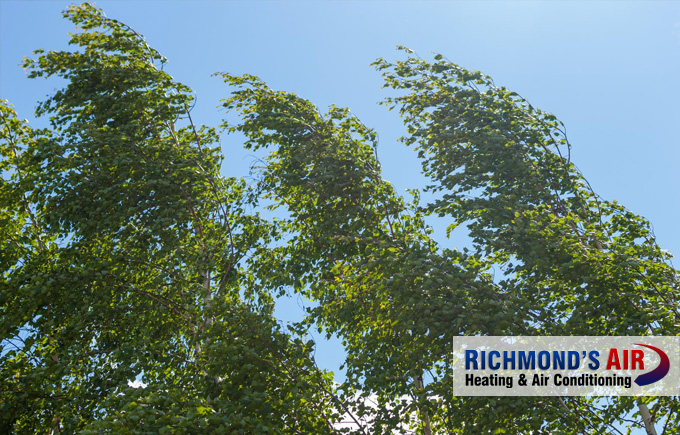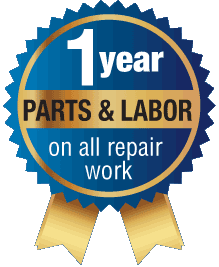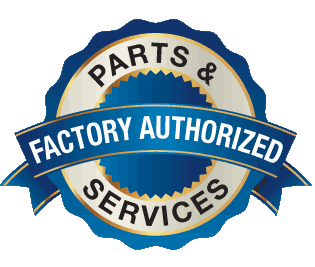Updated: June 20, 2024
The windstorm that struck Texas in late October of 2021 might have made many Houstonians think they were headed to Oz. During the storm, over 125,000 Harris County, Texas, electric customers were left without power after the Houston area saw high winds. The National Weather Service issued a wind advisory for the area to expect sustained winds between 20 and 30 MPH with wind gusts that could reach over 40 MPH. Some areas, like the Hobby Airport, reported wind gusts as high as 61 MPH.
Houston is no stranger to occasional high winds, whether from fast-moving squalls to tropical storms. According to Click 2 Houston, Hurricane Harvey’s maximum winds reached 132 MPH back in 2017.
Not only can these types of wind conditions bring down power lines (which they did) and cause damage to homes, but they can also wreak havoc on HVAC units.
Impacts of high wind on HVAC units
Poor indoor air quality
When wind blows, dirt gets dispersed and can gather inside your HVAC unit. When the unit turns on, it blows this accumulated dirt inside your house. This dirt can have negative impacts on your health if it’s inhaled, as the dirt can contain irritants as well as allergens. This can lead to asthma attacks or other respiratory problems. To avoid these issues, you should schedule routine HVAC maintenance that includes vent cleaning.
Dirt and dust entering your home’s air isn’t the only negative impact. Too much dirt running through your HVAC system can also cause parts of the system to break, often requiring costly repairs.
Accumulations of dust
Have you been noticing a musty smell inside your house or from your AC unit itself? This odor can indicate that a dust buildup on the evaporator coils of your HVAC unit has led to a blockage in your system. Winds blowing debris around your home can easily cause this kind of buildup.
Any blockages in the system can lead to the perfect environment for mold to grow. Just like having dirt and dust in your home’s air can be bad for your health, mold can also have negative health consequences. The solution to eliminating your HVAC’s mold problem is to routinely have the system unblocked and professionally cleaned.
Physical damage
Your HVAC unit can also be damaged by high winds. Not only can high-speed wind loosen parts of your HVAC unit itself, but it can also cause heavy debris to be thrown at the unit, which can also cause damage.
After a high-wind storm, it’s important to pay attention to the various noises your unit makes. If you notice any unusual noises, or if your unit isn’t working properly, it may need to be repaired. You should reach out to an HVAC technician as soon as possible to prevent further damage.
Keeping your HVAC unit safe
Fortunately, if you’re expecting severe weather with strong winds and you have ample warning, there are some preventive measures you can take to ensure your unit remains safe.
Cut the power
If the storm is expected to be severe, you can always power down your HVAC unit to ensure that no dirt or dust enters the system. Don’t simply turn down the thermostat. Cut the power completely by turning off the circuit breaker.
Secure the system
Before a storm with strong winds hits, you should ensure that the bolts holding your outdoor HVAC unit are tight. Additionally, if you’re expecting especially strong winds, you can always add hurricane straps to your unit.
Cover the system
If you’re cutting the power to your unit, you can cover it with a tarp capable of withstanding high winds. You can purchase a plastic or vinyl cover, or you could put a plastic, metal or wooden cage around your unit to keep it from being hit by debris.
Remove projectiles
For storms with ample warning, you can also remove any objects from your yard that could become airborne and be thrown at your HVAC unit. Common examples include tree branches, furniture, and toys.
If you have recently experienced high winds and feel that your HVAC unit isn’t working properly, reach out to the experienced HVAC technicians at Richmond’s Air, today.
 Read reviews
Read reviews








